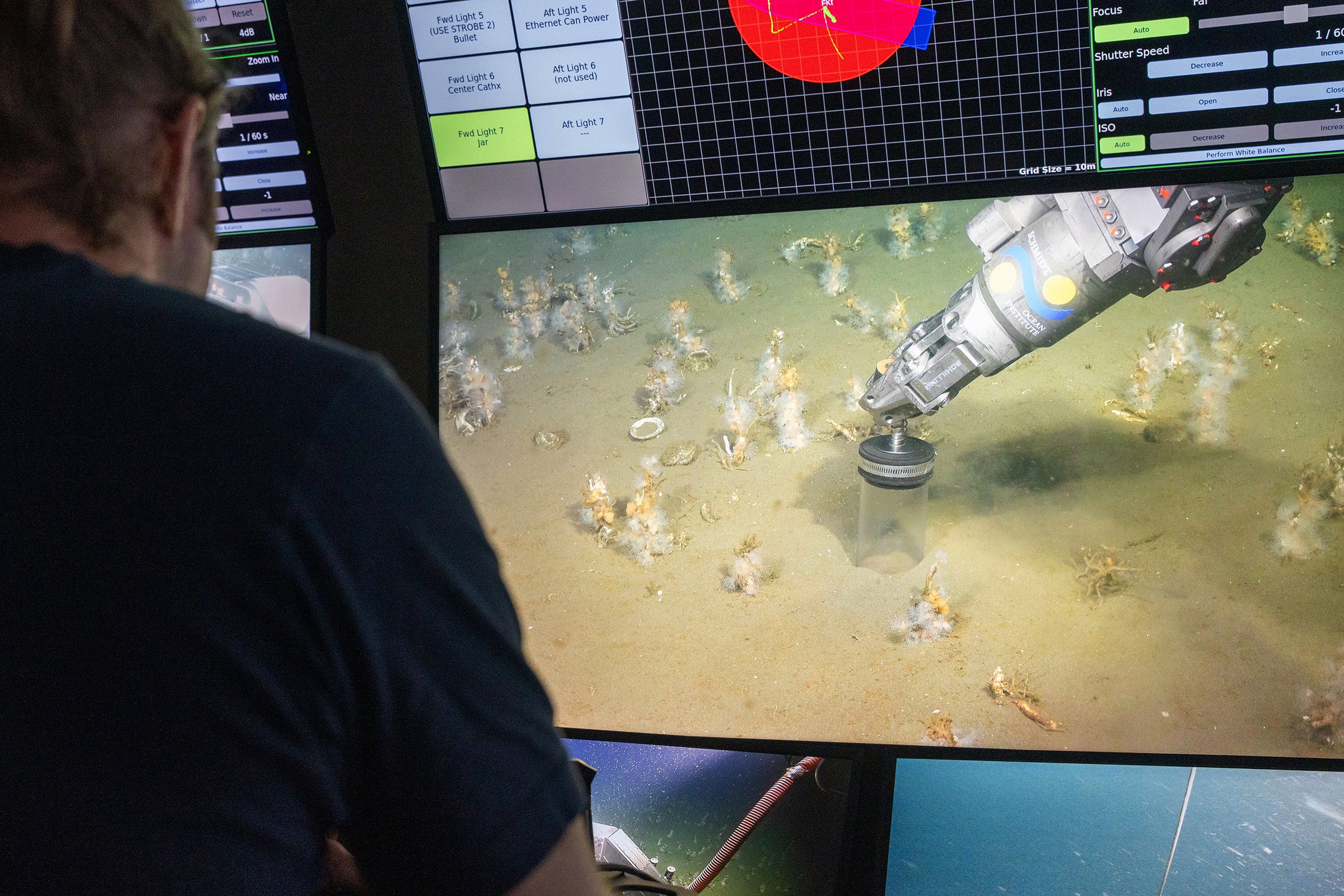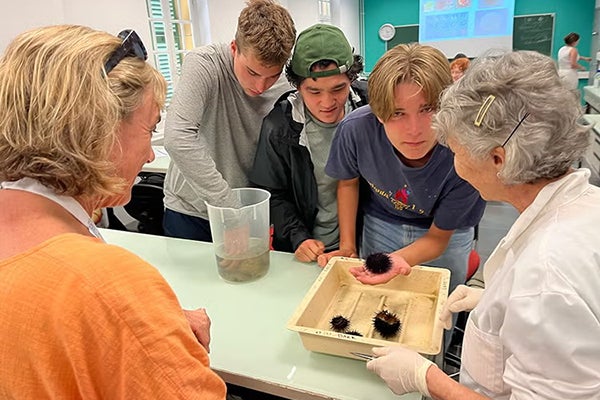Integrative Biology
Learning about interconnected life, from plants to animals, from genes to ecosystems.


Changes, Behaviors and Systems
With programs in ecology, evolution and behavior ranked among the nation’s top 10 and a strong network of biological research field stations, our biological scientists are leading the way in understanding and characterizing the rich diversity of life on our planet. The Department of Integrative Biology explores organisms that make up our world and the systems where they interact, falter and thrive. An interdisciplinary approach draws in connections with computing, neuroscience, infectious disease research and more.

Biology & Environmental Science
Some biology specializations overlap closely with Integrative Biology, while others relate more to the Departments of Molecular Biosciences and Marine Science.
Find examples of degrees & courses

We are taught to work collaboratively, but also expected to complete assignments and research independently.”
Isaiah Mitchell
Biology
Experiences & Careers
Students of integrative biology and environmental science at UT secure internships, study abroad, conduct field research and start organizations. They go on to a wide range of careers in the public, private and nonprofit sectors or do post-graduate study. Many enter jobs in healthcare, ecological research, bioinformatics or policy. Recent grads have job titles like:
- Specimen accessioner
- Forest engineer
- Patient care coordinator
- Toxicologist
- Zookeeper
Discover biology Major career Paths
See environmental science Major careers


Student Stories
Escape the Forty Acres and get into the field as you learn about integrative biology and environmental science, including in a Freshman Research Initiative research stream taught by award-winning faculty. Learn about modeling the spread of diseases, discover unique biodiversity in Texas at conservation-based research sites and study the evolutionary drivers of behavior.
Public domain science photo project powered by undergraduates
Study & Learn
An undergraduate degree in biology allows you to delve in depth into a concentration and to study the mechanisms of life. In addition to the degrees in biology, some undergraduates opt for the environmental science major. Graduate studies are available in ecology, evolution and behavior and plant biology.
Biology
Biology
Honors
Biology: Option 1
Ecology, Evolution & Behavior
Biology: Option 2
Human Biology
Biology: Option 3
Biology: Option 4
Microbiology and Infectious Diseases
Biology: Option 5
Cell & Molecular Biology
Biology: Option 7
Plant Biology
Biology: Option 8 Composite
Teaching, Senior grades/Middle grades/All certifications
Biology: Option 8 Life Science
Teaching, Senior grades/Middle grades/All certifications
Biology: Option 9
Biology Honors
Biology: Option 10
Computational Biology
Biology: Option 12
Genetics and Genomics
Environmental Science: Option 1
Biological Sciences
Environmental Science: Option 2
Biological Sciences Honors
Evidence and Inquiry
Evidence and Inquiry
Forensic Science
Marine Science
Pre-Health Professions
Non-Science Major Track. Students outside of the College of Natural Sciences only.
Pre-Health Professions
Science Major Track
Statistics and Data Science Minor
Statistics and Data Science Minor
UTeach-Natural Sciences Accelerated Track
UTeach Natural Sciences Secondary Teaching Option
Integrative Biology News

Some Bacteria Evolve Like Clockwork With the Seasons
The longest natural metagenome time series ever collected reveals a startling evolutionary pattern on repeat.



